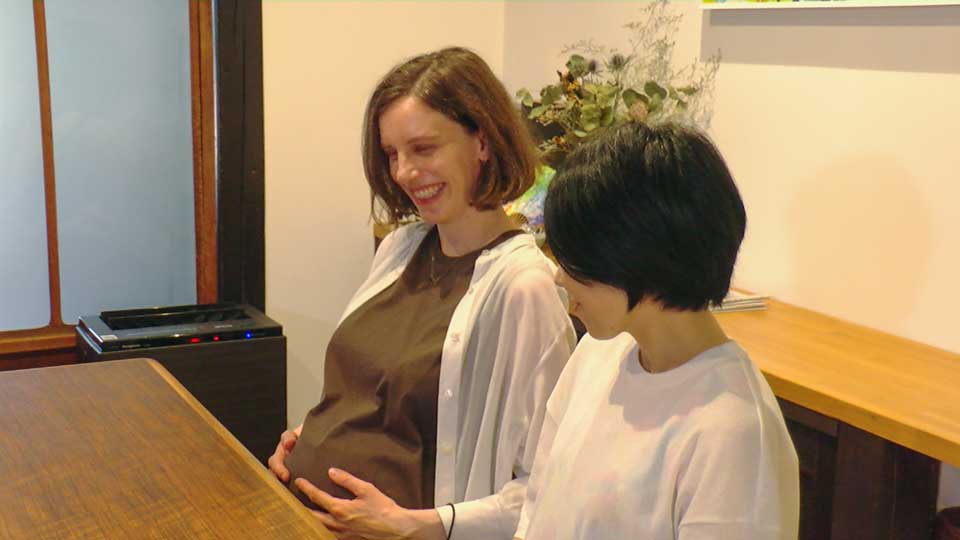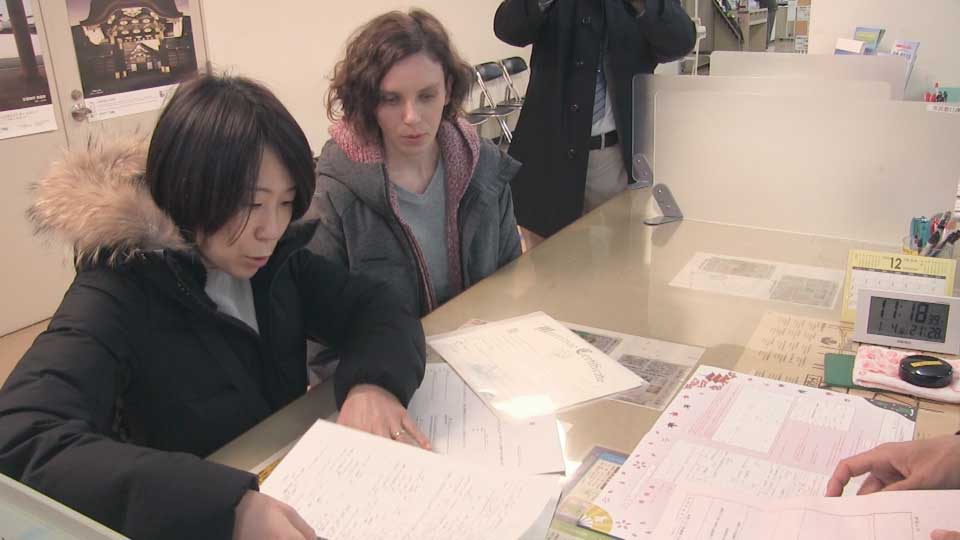
Machi, and Theresa fell in love when they met in Japan in 2008. Machi is Japanese, Theresa is American. The couple married in the United States in 2015.
For years, they've been battling to have their union recognized in Japan. And now that they've started a family the stakes are even higher.

The couple have decided to raise their child in Japan, but because Machi is not legally recognized as a parent, their baby doesn't have Japanese nationality.
For a heterosexual dual-nationality couple in Japan, it is an entirely different scenario. A child born under those circumstances can have dual nationality until the age of 20.
The discrimination that Machi and Theresa have faced over the years led them to join a court action as plaintiffs in a case that challenges the interpretation of the Japanese Constitution.

In Kyoto, they enjoy the support of friends and neighbors—but not the authorities. Though they were legally wed in Theresa's home state of Oregon, in Japan they are regarded as single people.

In 2019, they attempted to register their marriage with their local ward office. They filed a marriage document and in the column for "Wife" they wrote Theresa's name. They crossed out the word "Husband" on the form and wrote "Wife" instead, with Machi's name.
An official returned the form with an apology, explaining their same-sex union does not comply with Japanese law. "We were rejected in person," recalls Machi. "We were very disappointed, and saddened to feel no one was celebrating us. The official would have congratulated us if we were heterosexual."

The rejection prompted Machi and Theresa to join a class-action lawsuit that was heard by Osaka's District Court. It was one of several similar cases across Japan seeking marriage equality.
In court, Machi spoke from the heart about the discrimination based on gender identity and sexual orientation that people like her have faced all their lives: "Some of my peers can't come out even to their families, some struggle to get support at work or school, some even committed suicide. No one would have to go through this if we were living in an equal society. Stop pretending we don't exist," she told the judges.
"We hope for a society where everyone has the same rights, can compete on the same footing, can have hopes, and where homosexuals don't have to be pessimistic about their future."

Her pleas were brushed aside when the court ruled on June 20 that the Japanese government does not violate the Constitution by disallowing same-sex marriage. The ruling found that heterosexual marriage "is a system that has completely been established historically and traditionally in society".
"Marriage is assumed to consist of a man and woman. Marriage refers to a union of both sexes and does not include union of same-sex couples," read the judgement. The court rejected the plaintiffs' claim that the marriage law violates another section of the constitution that provides for equality.

Days later, Machi and Theresa, together with two other couples, appealed the case to the Osaka High Court. "There is still a long road ahead, but people involved in the court case will never give up. That is the driver to keep me going forward," says Theresa.
Now a mother, Theresa hopes that the court action will eventually result in a brighter future for future generations. Machi shares her partner's determination. "It's important not to be discouraged," she says.
While the Osaka District Court rejected the plaintiffs' key claims, it did acknowledge the need for a new administrative system that caters to same-sex couples.
Something like that already exists, but only on a regional basis. Partnership registrations started in Tokyo's Shibuya and Setagaya wards in 2015, and are now available in more than 200 municipalities nationwide.

But Machi and Theresa point out that the partnership system is nothing like marriage. It offers no inheritance and tax benefits. And because it is operated by local governments, it cannot be transferred if a couple moves to a different area.
The couple have already faced many difficulties stemming from their legal status in Japan. They were denied a joint bank loan when they bought their house. And they worry about what will happen if one of them is unable to work or falls ill.
Machi and Theresa want their relationship to be protected by that same law that applies to heterosexual couples -- something that would bring them peace and security as they raise their child.

You can watch the full program on demand. It is available until September 26, 2024.

